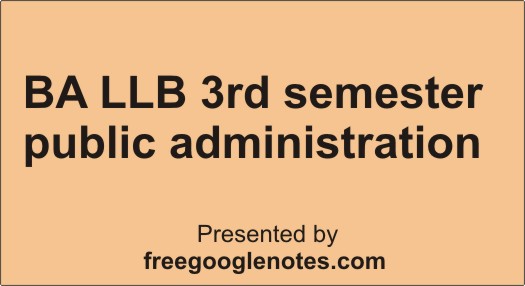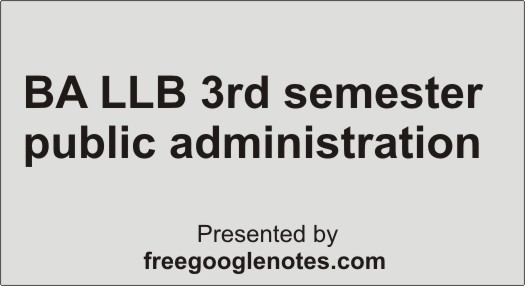Table of Contents
Contract Law notes- BA LLB ,LLB on aggrieved party on the breach of a contract
You can also follow us on @freegooglenotes
Q. 3. List out the remedies available to an aggrieved party
on the breach of a contract. Discuss the following remedies
for breach of contract.
(a) Rescission
(b) Quantum meruit
(c) Specific performance (d) Injunction
(e) Rectification or cancellation.
Ans. Contract law contract gives rise to correlative rights and obligations. A
right accruing to a party under a contract would be of no value if there
were no remedy to enforce that right in a Law Court in the event of its
infringement or breach of contract. A remedy is the means given by law
for the enforcement of a right.
When a contract is broken, the injured party (i.e., the party who
is not in breach) has one or more of the following remedies :
(1) Rescission of the contract.
(2) Suit for damages.
(3) Suit upon quantum meruit.
(4) Suit for specific performance of the contract.
(5) Suit for an injunction.
(a) Rescission
(Contract law example)
When a contract is broken by one party, the other party may sue
to treat the contract as rescinded and refuse further performance. In
such a case, he is absolved of all his obligations under the contract.
Example: A promises B to supply 10 bags of cement on a certain
day. B agrees to pay the price after the receipt of the goods. A does not
supply the goods. B is discharged from liability to pay the price.
The Court may grant rescission :
(a) where the contract is voidable by the plaintiff; or
(b) where the contract is unlawful for causes not apparent on its
face and the defendant is more to blame than the plaintiff.
The Court may, however, refuse to rescind the contract :
(a) where the plaintiff has expressly or impliedly ratified the
contract; or
(b) where owing to the change of circumstances (not being due
to
any act of the defendant himself), the parties cannot be restored to
their original positions; or
(c) where third parties have, during the subsistence of the contract,
acquired rights in good faith and for value; or
(d) where only a part of the contract is sought to be rescinded and
such part is not severable from the rest of the contract.
When a party treats the contract as rescinded, he makes himself
liable to restore any benefits he has received under the contract to the
party from whom such benefits were received. But if a person rightfully
rescinds a contract he is entitled to compensation for any damage which
he has sustained through non-fulfillment of the contract by the other
party.
(b) Quantum Meruit
The phrase ‘quantum meruit literally means ‘as much as earned.
A right to sue on a quantum meruit arises where a contract, partly
performed by one party, has become discharged by the breach of the
contract by the other party. The right is founded not on the original
contract which is discharged or is void but on an implied promise by the
other party to pay for what has been done.
(c) Specific Performance
In certain cases of breach of a contract, damages are not an
adequate remedy. The Court may, in such cases, direct the party in
breach to carry out his promise according to the terms of the contract.
This is a direction by the Court for specific performance of the contract
at the suit of the party not in breach.
Some of the cases in which specific performance of a contract may,
in the discretion of the Court, be enforced are as follows:
(a) When the act agreed to be done is such that compensation in
money for its non-performance is not an adequate relief.
(b) When there exists no standard for ascertaining the actual
damage caused by the non-performance of the act agreed to be done.
(c) When it is probable that the compensation in money cannot
be got for the non-performance of the act agreed to be done.
Specific performance will not be granted where :
(a) damages are an adequate remedy;
(b) the contract is not certain, or is inequitable to either party;
(c) the contract is in its nature revocable;
(d) the contract is made by trustees in breach of their trust;
(e) the contract is of a personal nature, e.g., a contract to marry;
(f) the contract is made by a company in excess ci its powers as
laid down in its Memorandum of Association;
(g) the Court cannot supervise its carrying out, e.g., a building
contract.
(d) Injunction
Where a party is in breach of a negative term of a contract (1.e.,
where he is doing something which he promised not to do), the Court
may, by issuing an order, restrain him from doing what he promised not
to do. Such an order of the Court is known as an “injunction’.
Examples : (a) W agreed to sing at L’s theatre, and during a
certain period to sing nowhere else. Afterwards W made contract with
Z to sing at another theatre and refused to perform the contract with
L. Held, W could be restrained by injunction from singing for Z (Lumley
v. Wagner, (1852) 5 De G.M. & G. 604).
(b) N, a film actress, agreed to act exclusively for W for a year
and for no one else. During the year she contracted to act for Z. Held,
she could be restrained by injunction from doing so (Warner Bros. v.
Nelson, (1937) 1 K.B. 209).
The grant of an injunction by the Court is normally discretionary,
but there seems no reason why the Court should refuse the grant of an
injunction to restrain the breach of a contract :
(a) whereby a promisor undertakes not to do something, e.g., not
to carry on a certain trade /Nordenfelt v. Maxim Nordenfelt Co. Ltd.,
(1894) A.C 535); or
(b) which is negative in substance though not in form.
Example : G agreed to take ali the electric energy required by his
premises from M. Held, this was in substance an agreement not to take
energy from any other person and it could be enforced by injunction
[Metropolitan Electric Supply Co. v. Ginder, (1901) 2 Ch. 792). (contract law)
(e) Rectification or Cancellation
When through fraud or a mutual mistake of the parties, a contract
or other instrument does not express their real intention, either party
may institute a suit to have the instrument rectified. In such a case, if
the Court finds that there has been a fraud or mistake, it may ascertain
the real intention of the parties, and may, in its discretion, rectify the
instrument so as to express that intention. But this must not prejudice
the rights acquired by third persons in good faith and for value. If
rectification is not possible, the Court orders for the cancellation of the
contract.
A written document which is void or voidable against a person
may cause him in some cases a serious injury if it is left outstanding. In
such a case, if he has any such apprehension, he may file a suit to have
the document adjudged void or voidable. The Court may, in its discretion,
adjudge such a document void or voidable and order it to be delivered
up and cancelled.(contract law)
Example: A, the owner of a ship, fraudulently representing the
ship to be seaworthy, induces B, an underwriter, to insure the shipment. B
may obtain the cancellation of the policy.









